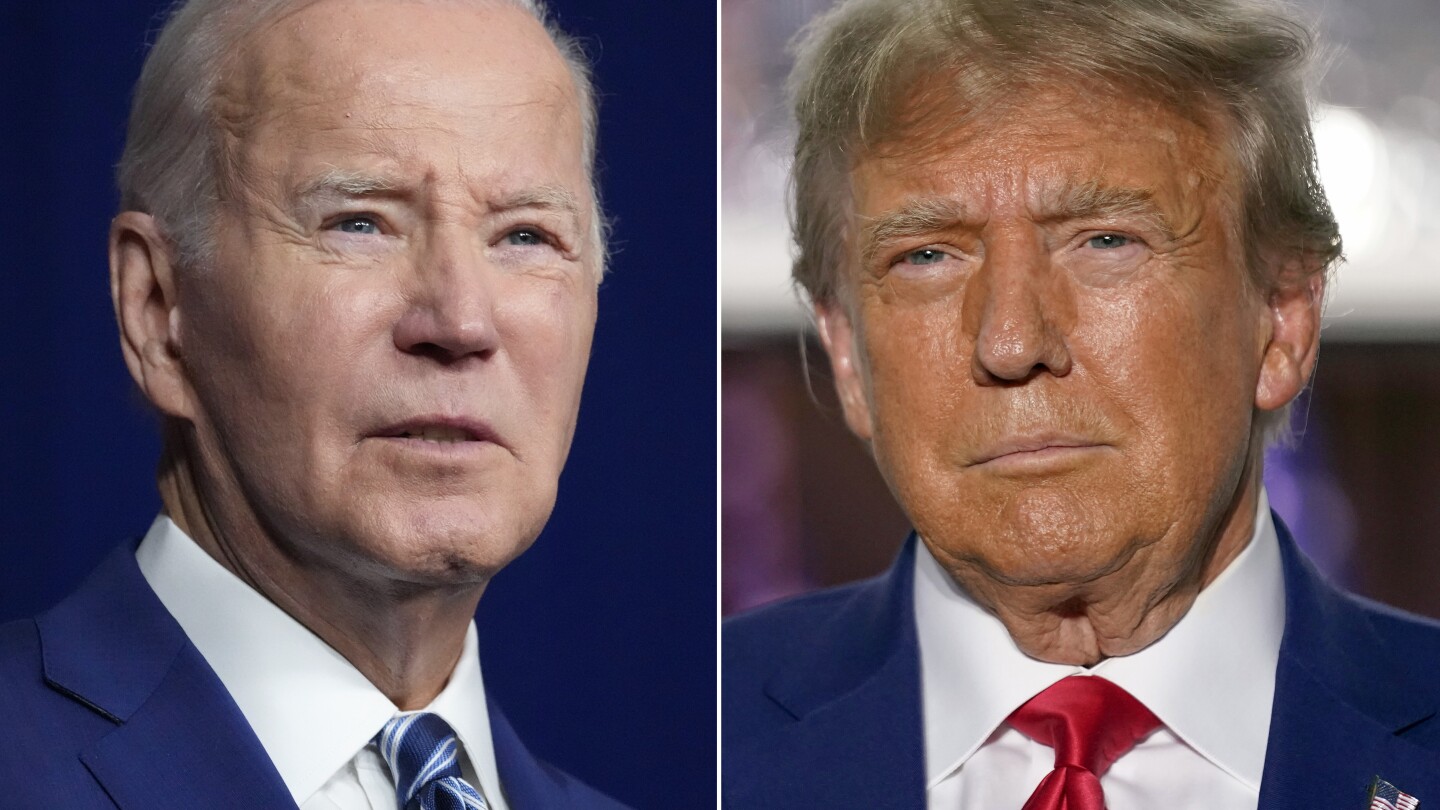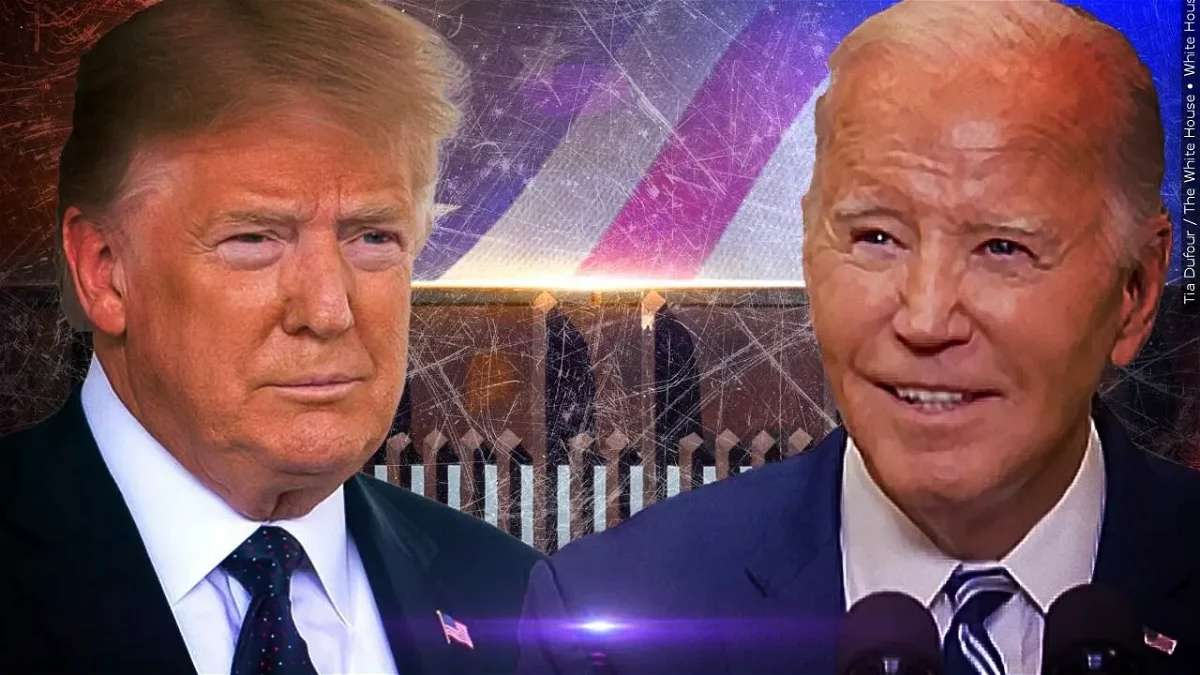The much-anticipated showdown between President Joe Biden and former President Donald Trump unfolded at the U.S.-Mexico border in Texas, a battleground that Republicans hoped to leverage for political gain after the November elections.
The focus on border issues has intensified, with both leaders addressing a concern that Americans increasingly view as a high priority.
President Biden, who has faced consistent criticism on immigration matters throughout his presidency, took an unexpected step by extending a policy olive branch to Trump.

Biden and Trump (Credits: AP News)
Despite blaming Donald Trump for hindering a bipartisan border security bill in Congress, Biden urged collaboration, proposing they work together to pass the legislation.
In contrast, Trump, addressing the crowd in Eagle Pass, Texas, did not reciprocate the cooperation. Instead, he claimed inaccurately to have overseen history’s “most secure” border.
He placed blame on Biden for an incident involving the killing of a University of Georgia student, attributing it to an immigrant in the country illegally.
Trump characterized the situation as a “war” and a “military operation,” denouncing the “Biden invasion” that, according to him, led to a “migrant crime wave.”
The prospect of reconciliation between the two leaders seems improbable. While Trump advocates for a wall, which polls indicate is supported by a majority of Americans, Biden is pushing for a bipartisan package to enhance both law enforcement and legal resources to address the migrant influx.
Biden’s strategy involves taking control of issues the GOP has wielded against him. He aims to counter the narrative on immigration and position himself favorably.
On economic matters, he emphasizes record job numbers, a high-performing stock market, and overall economic growth to demonstrate the success of “Bidenomics.”
Despite positive economic indicators, Biden faces challenges in winning over voters, particularly on immigration. A recent Marist Institute for Public Opinion poll reveals that only 29% of Americans approve of Biden’s handling of immigration, down from 38% in 2021.
Concerns about illegal immigration have risen, and Biden struggles to shake the perception that the economy is poor and that he bears responsibility for border-related issues.
The Marist poll director, Lee Miringoff, emphasizes the significance of perception in politics, and Biden’s struggle with the economic narrative and immigration concerns has contributed to his challenges.
Patrick Murray, director of the Monmouth University Polling Institute, notes that the immigration debate has shifted from an economic focus to one about crime and safety. Biden, in particular, faces criticism when crimes are committed by individuals in the country illegally.
Despite winning on issues like violent crime rates, immigration remains a weak point for Biden. Democrats recognize the need for Biden to address the problem, even if they don’t align with the Republican solution. Biden argued in a plea to Congress that Republicans need to act, highlighting bipartisan support for the legislation.
The dynamics at the U.S.-Mexico border, along with the broader immigration discourse, continue to shape the political landscape, influencing public opinion and challenging Biden’s efforts to gain traction on the issue.























